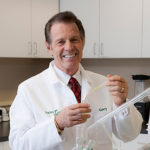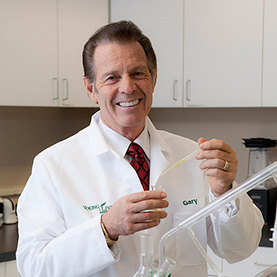
Young Living Farms based out of Lehi, Utah has been selling essential oils for medicinal properties since they were founded by D. Gary Young over twenty years ago. Some of the claims D. Gary Young has personally made include that their essential oils can cure a myriad of illnesses and that their oils can also prevent disease. It’s clear from the debate surrounding this issue that there are many ardent believers but there are also many skeptics.
Now it appears that if Young Living wants to continue to market their oils for their preventative and healing properties, they will need to have their oils classified as “drugs” which would require them to be scrutinized, examined and certified by the FDA, a process which can require very expensive clinical trial testing.
It’s highly unlikely that Young Living Farms or their competitor doTERRA could survive under their current business model (as MLM companies) if their oils will require similar pharmaceutical trials that consumer medications require. Currently neither Young Living nor doTERRA reps require any official medical, biological or pharmaceutical certification in order to sell the essential oils as medicine. Their reps swear by their healing properties mostly by providing anecdotal evidence rather than providing scientific facts or clinical trial evidence. Some reps go so far as to claim that the oils will prevent or cure cancer and diabetes. This has resulted in backlash by some legitimate aromatherapy organizations or consultants who believe these representatives end up muddying the playing field or tarnishing the legitimate properties of essential oils.
Due to restrictions the FDA places on products under its umbrella, it would be unfortunate for consumers, reps, and Utah based companies if the oils had to go through the federal approval process . The tobacco industry fought this battle about 15 years ago and eseential won with the requirement that their products be labeled as carcinogenic. This was a good outcome because the nicotine levels in many tobacco products are carefully monitored and cigarettes are a known carcinogen.
The letter written by the FDA to Young Living Oils is quite lengthy, pointing out dozens of websites run by consultants making claims as wild as that Young Living Oils will cure or prevent the Ebola virus. Below is an excerpt from the letter.
This is to advise you that in August 2014 the U.S. Food and Drug Administration (FDA) reviewed websites and social media accounts (e.g., Facebook, Twitter, and Pinterest) for several Young Living essential oil consultants that your firm refers to as “Young Living distributors.” FDA also reviewed a 2012-2013 product guide found on your website http://www.youngliving.com. Based on our review, FDA has determined that many of your Young Living Essential Oil products, such as, but not limited to, “Thieves,” “Cinnamon Bark,” “Oregano,” “ImmuPower,” “Rosemary,” “Myrtle,” “Sandalwood,” “Eucalyptus Blue,” “Peppermint,” “Ylang Ylang,” “Frankincense,” and “Orange,” are promoted for conditions that cause them to be drugs under section 201(g)(1)(B) of the Federal Food, Drug, and Cosmetic Act (the Act) [21 U.S.C. § 321(g)(1)(B)], because they are intended for use in the diagnosis, cure, mitigation, treatment, or prevention of disease. The intended use of a product may be determined by, among other things, its labeling, advertising, and the circumstances surrounding its distribution, 21 C.F.R. § 201.128. As described below, the marketing and distribution of your Young Living Essential Oil products without FDA-approved applications is in violation of the Act.






